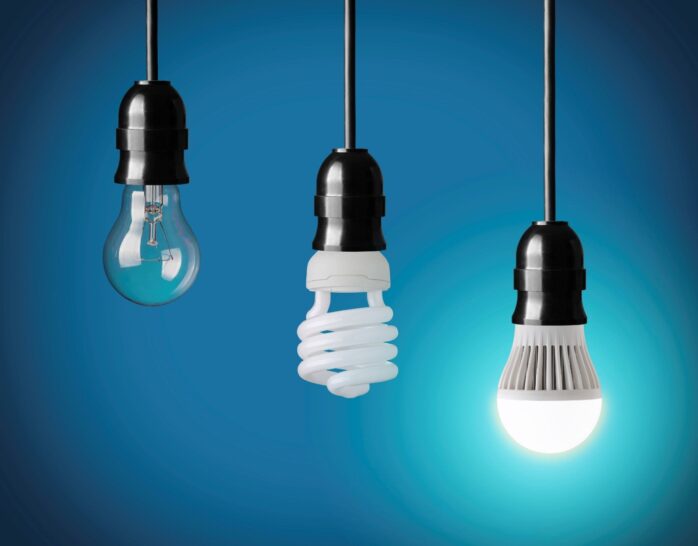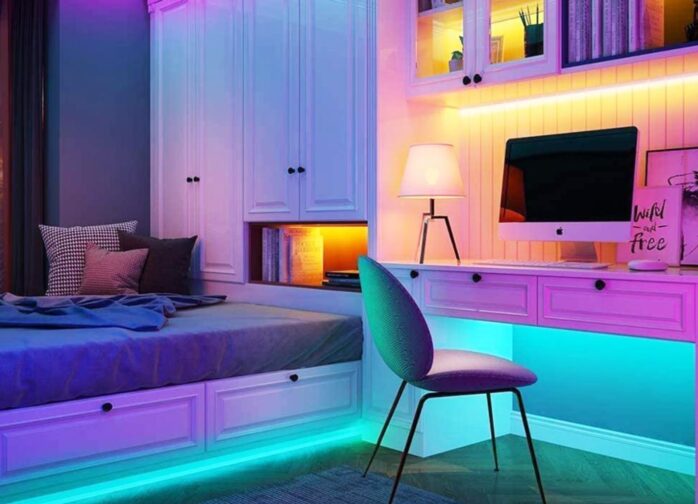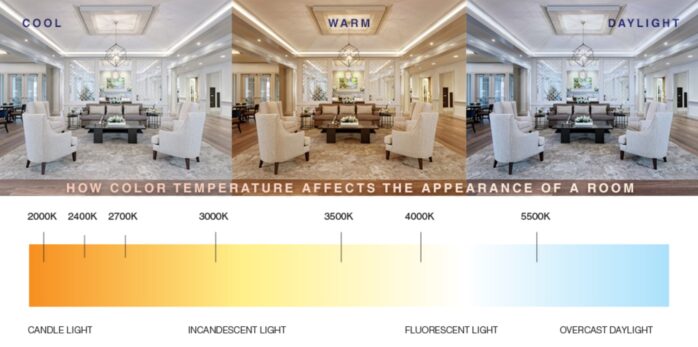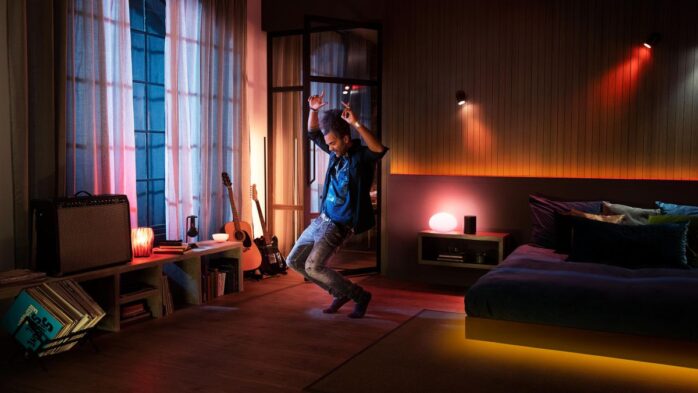LED lighting is becoming increasingly popular, and it is for a good reason. The light quality is almost as equal to classic and halogen light sources – and it significantly saves energy. Also, it comes in various colors which can be very attractive. Still, when you choose the light for the rooms in your house, you need to think about certain things. Especially when it comes to the bedroom. Therefore, if you wish to have color LED lights in your bedroom, here is how to choose them.
Advantages Of LED Lights
As we already know, in earlier years, LED lights were more expensive than ordinary ones. However, mass production resulted in lower price levels today, so now they are way more affordable. In addition, LED lights can last for years, and they are more profitable in the long run because they offer durability and efficiency. By using LED lights, we waste less energy on heat production and spend it where we need it – on the lighting. In addition, with LED lights, we can also choose the color lighting – and unlike fluorescent neon sources, LED lights do not pollute the environment. Because of these benefits, more and more people want to light up their homes this way. However, we often reconsider this decision because we don’t know how to choose the appropriate light intensity and color of the LED lights for each room in our home.

Colors Of LED Lighting And How To Use Them
The color of LED lights is classified by color temperature. The light scope ranges from warm white shades to neutral to cool white. The color of the light is marked in Kelvin – and with LED lights it usually ranges from 2700K to 6500K. For warm, more yellowish color effect – all colors up to 3500K are considered. They are most often used in homes not only because they resemble the light of ordinary bulbs and are a logical replacement for them – but also because warm tones are conducive to relaxation. From 3500 to 5500K are considered neutral – while colors above 5500K are considered cool and have a bluish tone. Light colors from 4000 to 6500K are used in areas that require working lighting – such as offices, large retail stores, warehouses, and other business facilities. So how to choose an adequate color according to the room where we are going to install this kind of lighting?
LED Lights In Your House
It is clear that even if you want to install LED lighting in your house – it cannot be the same for every room. According to prismalighting.co.uk, the living room or working rooms require slightly brighter lighting – while for the bedroom, you need soothing tones to help you drift off to sleep. Therefore, you must be careful when choosing light – because it can affect your alertness, mood, concentration, etc. Fortunately, today we have a large selection of LED lighting, and in well-stocked online stores, you can find everything – excellent design and the best lighting for your rooms.

LED Lighting In The Bedroom
This is the room in our house where we need to wisely choose the LED lights. As we said, different kinds of lights produce different kinds of effects. We all wish to have a relaxed and soothing atmosphere in the bedroom. Avoiding cool lights in the bedroom will prevent our brain from mistaking the light produced by the bulb for natural daylight. For this reason, use warmer tones of light in the bedroom. Do you like to read before bed? If you have a reading lamp or are planning to buy one – choose one that produces warm or neutral tones of light.
Warmer LED Lights Are The Best Choice For The Bedroom
Different types of light affect the secretion of certain hormones in our bodies. So, for example, lights that emit cool light – stimulate our body to secrete serotonin that makes us focused, alert, and awake. Those that produce warmer light stimulate the production of melatonin that makes us relaxed and ready for a good night’s sleep. Lights with a lower temperature produce warm white (yellow) light – similar to fire. Medium temperatures produce natural white light, while bulbs with a higher temperature produce cold white light – that is, they simulate daylight. It is clear that in this case, the lights in the working rooms or the bedroom should not be the same color. Suggested color temperatures for the bedroom: 2700-3000K.

What Kind Of Light To Avoid In The Bedroom?
Different colors of light can have various effects on people. Many people spend a lot of time in front of computers and electric screens, which mostly emit blue light. Blue light is good during the day. Blue light affects improving attention and mood. However, exposure to blue light during the night is not a good thing at all. Blue light during the night suppresses the production of the sleep hormone – melatonin. It regulates your biorhythm, which is your body’s 24-hour clock that tells you when it’s time to sleep and when it’s time to wake up. Therefore, do not choose lighting that will similarly affect your sleep.
The Importance Of Light For Our Health
Light dramatically affects the health of all living beings. There is a lot of research going on in the world on this topic, and there is still a whole science of light that we need to discover and understand. What is proven as a fact is that light can affect our physical health, as well as our general psychological state. Researchers study daily what effect light has on the elderly, children, and the biorhythm in people. Lights also have a proven impact on depression, cancer, diabetes, heart disease – and many other health aspects that are still being studied.

The Bottom Line
As we can see, the choice of LED lighting has a lot to do with aesthetics – but also with the functionality of rooms like the bedroom. Therefore, you should make this choice wisely. With today’s modern lighting design and all the features that LED lighting offers – we are sure that you will make a good choice.
The post Which Color LED Light Is Best For The Bedroom? appeared first on FotoLog.
from FotoLog https://ift.tt/2S0dU7I
via IFTTT



0 Comments